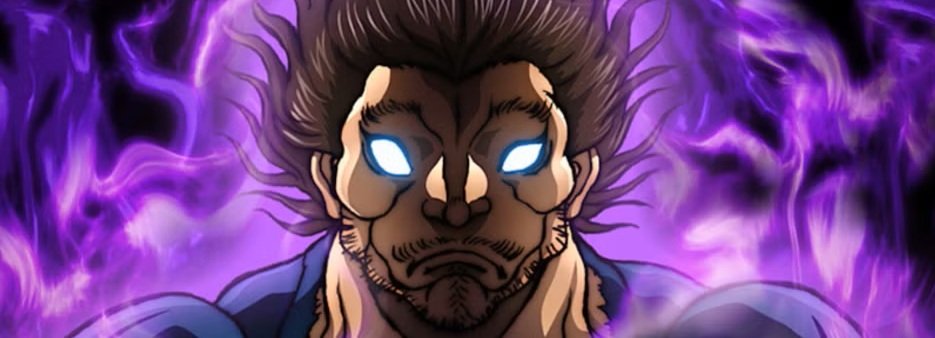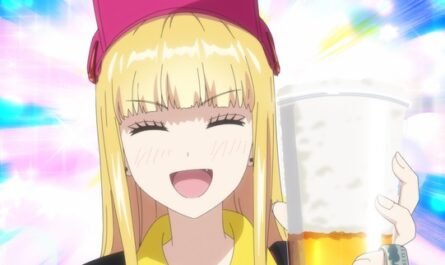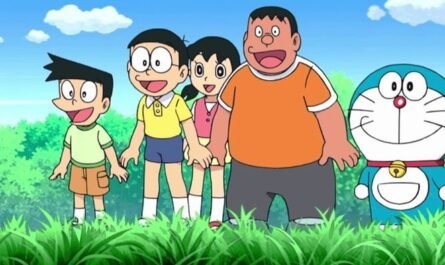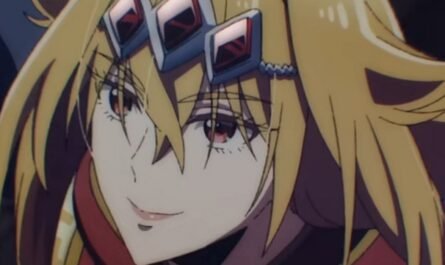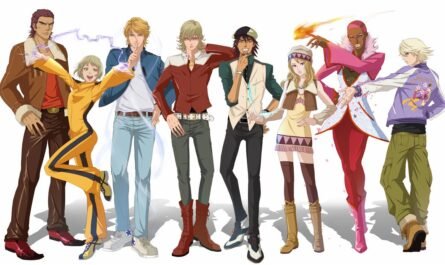This article contains spoilers for “Baki-Dou.” Please be careful if you haven’t read it yet. Akita Shoten has announced an anime adaptation of Keisuke Itagaki’s manga “Baki-Dou.” It has been revealed that the series will be released worldwide exclusively on Netflix in 2026. A teaser visual and trailer have also been released, depicting the battle between legendary swordsman Miyamoto Musashi and modern-day warriors.
“Baki-Dou” is the fourth installment of the “Baki” series, serialized in Weekly Shonen Champion from 2014 to 2018. With an original art exhibition and a talk show with Itagaki to be held in Kyoto in September, its popularity and attention show no signs of waning.
The story begins after the battle between Baki Hanma and his father, Yujiro Hanma, as Baki returns to his dreary daily life, only to find himself fighting a clone of Miyamoto Musashi resurrected and the warriors of an underground arena. Miyamoto Musashi was cloned by scientists under Tokugawa Mitsunari using cells from his remains, and his soul from the underworld was brought back to life by the medium Tokugawa Kanko. Although his body is a clone, he retains the memories and skills of his time just before death. He also possesses the strength, endurance, and perceptions he developed as a master swordsman during the Warring States period, bringing them to the present day.
This makes him a prime candidate for the “strongest” theme of the Baki series. In the story, protagonist Baki immediately clashes with Musashi. In their first bout, Musashi catches Baki’s flying kick by surprise and slams him to the ground, securing victory. In their second bout, Baki throws a jab that brings Musashi to one knee, but the match ends with a single chop. In his fight against karate master Doppo Orochi, Baki counters Doppo’s flying kick with his sword, dismissing him with a “no need to cut him down.”
In his battle with Pickle, the strongest warrior of the Cretaceous period, Musashi decided that his bare sword would be ineffective against Pickle’s thick muscles and bones, so he used his beloved sword, slashing Pickle’s joints and destroying his will to fight. He struggled against the brawler Kaoru Hanayama, but ultimately managed to lock down his powerful arm with a deep slash to his stomach. The most striking battle in this series was the one against Kaioh Retsu. While surprised by Retsu’s diverse attacks, Musashi kept the pace throughout the fight, ultimately killing him.
The most powerful man in Chinese martial arts then left the stage and was reincarnated in an alternate world. He continues to battle monsters in “Baki Gaiden: Kaioh Retsu Doesn’t Care If He’s Reincarnated in Another World,” currently serialized in “Monthly Shonen Champion.” Readers were thrilled by the showdown between Musashi and “the strongest creature on earth,” Yujiro Hanma.
Musashi is quickly cornered, but he attempts to unleash his secret technique, “Muto,” which cuts his opponent in half with a single chop without using his sword. Seeing this, Yujiro instantly senses a change in Musashi’s aura and becomes wary. Just as Musashi is about to attack, the judoka Izo Motobu steps in, a disappointing turn of events. However, the words Motobu utters after this are not to be missed: “If I hadn’t stepped in then, Ogre (Yujiro) would have been cut down.”
While Motobu is treated as a “punishing tool” in the story and has little credibility among readers, this moment marks the first time the absolute notion that “Hanma Yujiro is the strongest” is shaken. While Musashi overwhelms Motobu, he is caught off guard and knocked unconscious with a naked choke, his only defeat, and his ranking as “strongest” is undeniably lowered.
Even so, whether Musashi would have surpassed Yujiro if Muto had been unleashed has been a matter of heated debate among readers. In the end, he fights Baki for the third time, but here too, Tokugawa Kanko intervenes, ripping out his soul, and Musashi is called to heaven, resulting in a frustrating ending. As a historical figure and depicted as the “strongest” in various works, perhaps there was some hesitation in depicting an apparent defeat. In any case, as his body is still in good health, it is possible that he could reappear in the main story if the anime broadcast proves popular.

